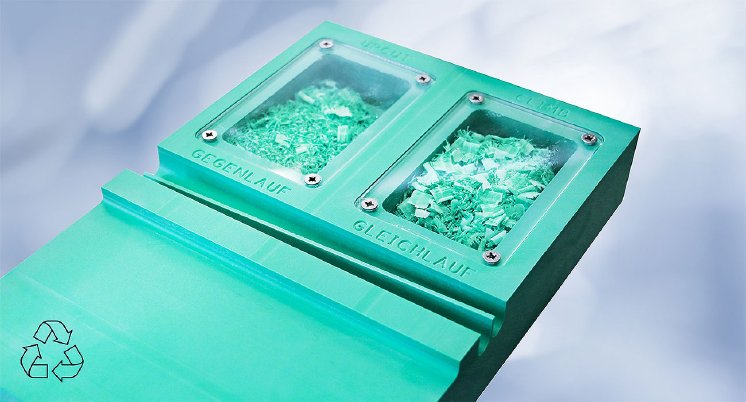It is not current trends that are driving RAMPF Tooling Solutions to take these actions, but a genuine sense of responsibility toward people and the environment. This is why the company has been using recycled polyols to produce its RAKU® TOOL polyurethane board materials for almost three decades.
Alexander Ege, Director of Research & Development at RAMPF Tooling Solutions – “The closed-loop approach has always been a focus point in our development work and long-since become state of the art at RAMPF Tooling Solutions. We use chemical recycling to extract high-quality raw materials from our production waste. Polyurethane residues from production are broken down into their basic chemical components and processed into a new raw material. The resulting recycled polyols are then used in the manufacture of new boards.”
The raw material components are developed and produced together with the sister company RAMPF Eco Solutions.
“The polyols created in this way are of a very high quality and have the properties required for producing high-performance board materials,” says Ege. “With this approach we live up to our responsibility as a sustainable company. This has been the commitment of our company founder, Rudolf Rampf, since the 1990s.”
Improved eco credentials thanks to high performance and top quality
Denny Föhn, Director of Sales & Marketing at RAMPF Tooling Solutions – “With the high performance and quality of our products we make a significant contribution to a better ecological balance in the tooling market. With this we enable maximum product lifespans, which, of course, also benefit our customers and partners. A prime example of this is our highly abrasion-resistant board material for the foundry industry, RAKU® TOOL WB-1258, which can be used to create more than 100,000 moldings.”
In 2016, RAMPF Tooling Solutions was certified to the internationally recognized ISO 14001 standard. The aim is to find the optimal balance between operational cost-efficiency and environmental protection. The focus, among other things, is on reducing resource consumption and emissions during the manufacturing process as well as further reducing waste.

